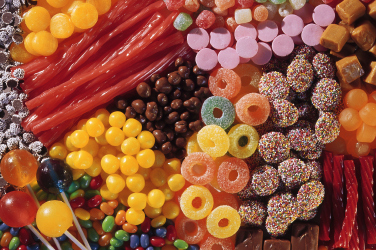
Sugar doesn't contain any nutrients
The world’s obesity problem shows no signs of slowing and recent research claims that it is not our caloric intake or exercise regime that has changed over the last 50 years; it is the sheer amount of sugar in our food.
Rebecca Dorta, Nutritionist at Grayshott Spa, www.grayshottspalife.com tells us why sugar is a major culprit in the case against obesity and many, if not all, health concerns.
Empty Calories
Refined sugars are void of any nutrients. They contain no fibre, fats, proteins, enzymes, minerals or vitamins and therefore cause a nutrient debt in the body, as nutrients are required to process them. Sugar is not only lacking nutritional value but also robs your body of nutrients.
Mood Swings
Amongst the effects on the body, sugar creates metabolic imbalances, makes blood sticky and thick thus impairing circulation, feeds yeast and fungus, encourages anxiety and hyperactivity, suppresses the immune system, creates mood changes, affect our appetite and affects our storage of energy, encouraging lack of energy.
Cravings
Sugar quickly enters your blood stream causing a shock to specific organs and signalling to cells to turn those excess sugars into fat. It causes the body to change sugar into 2- 5 times more fat than starch. It can affect the hunger hormone Ghrelin - the hormone that stimulates appetite - which means that can of fizzy drink will actually encourage you to eat more. It also does not stimulate leptin - the hormone that controls hunger - and signals that the body has had enough to eat, which means that you do not feel full when eating sugar. It provides us with short-lived energy highs, followed by equally fast drops of energy, and intensifies cravings for more sugar.

Rebecca’s Top Tips for Staying Slim
Avoiding refined sugars is a major step in reducing the obesity problem, particularly processed foods, fizzy drinks and flavoured waters. It is important to eat whole foods where nutrients have not been separated. So in the case of carbohydrates, it is important to eat carbs that have fibre and have not been refined or processed. For example, fruit has fibre and essential nutrients as well as micronutrients and can be used to sweeten food, as a better alternative to refined sugar.
Here are Rebecca’s top tips for keeping healthy and slim:
1) Hydrate
2) Include all food groups (especially fats and protein)
3) Increase vegetables
4) Monitor portion sizes
5) Slow down and chew food carefully
6) Wait 20 minutes before any seconds
7) Try to do high intensity interval exercise

